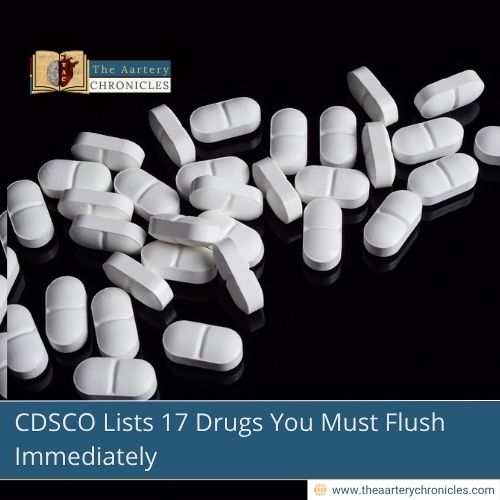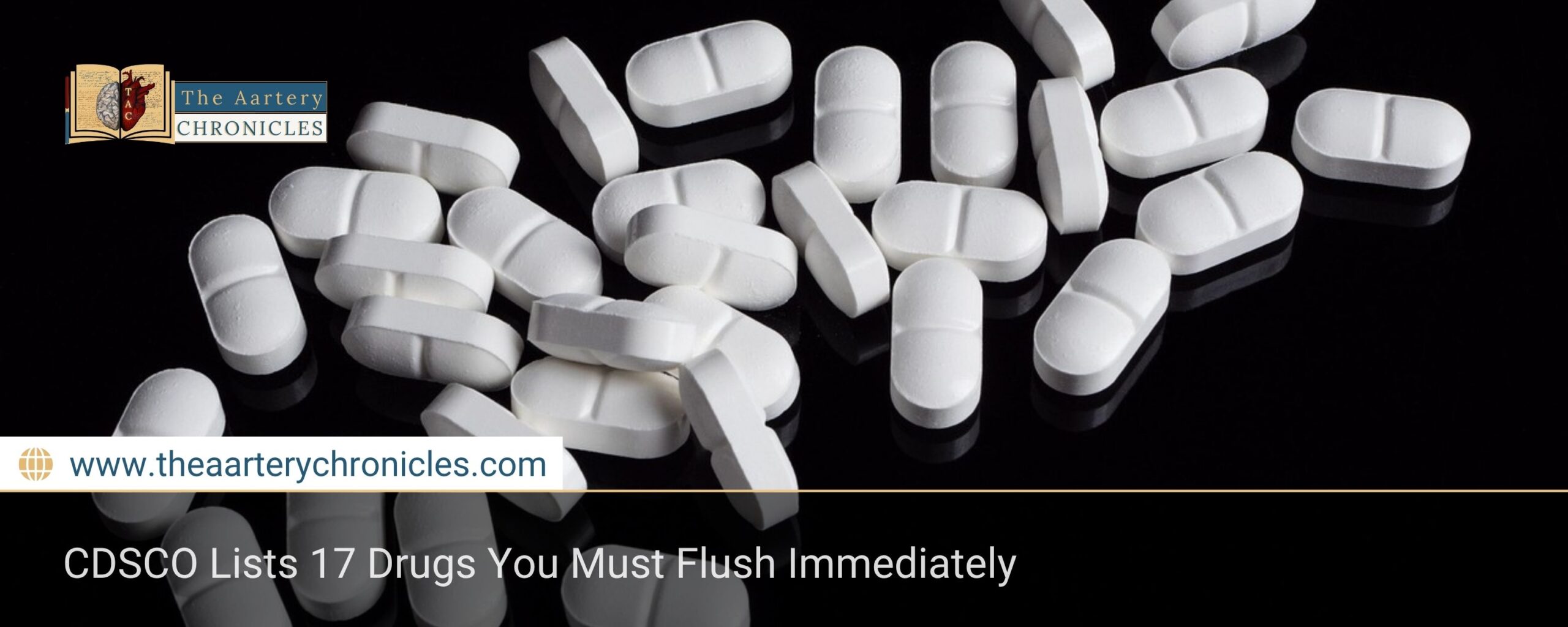

CDSCO Lists 17 Drugs You Must Flush Immediately
India’s top drug authority, the Central Drugs Standard Control Organisation (CDSCO), has issued an important safety alert about how to dispose of certain high-risk medicines. The agency has released a list of 17 specific drugs that should be flushed down the sink or toilet immediately if they are unused or expired at home.
Which Medicines Are on the “Flush List”?
The list includes powerful painkillers like fentanyl and Tramadol, as well as Diazepam, a medication used to treat anxiety. These medicines, often classified as narcotics or controlled substances, can be very harmful or even deadly if taken by anyone other than the person they were originally prescribed for even in small amounts.
“Flushing these medicines is the safest way to prevent accidental exposure, misuse, or serious harm to people and pets,” says the CDSCO.
Why These Medicines Must Be Flushed
Unlike most over-the-counter drugs, these 17 listed medications are considered highly potent and potentially addictive. If left lying around, especially in households with children or pets, they could pose a major risk. Moreover, they are also prone to being misused or abused, making it essential to eliminate them safely and completely.
What About Other Medicines?
For most other medications, the CDSCO does not recommend flushing. Instead, these drugs should be disposed of scientifically to avoid environmental contamination. Improper disposal such as tossing pills in household trash or drains can lead to serious consequences for water bodies and ecosystems.
Why Safe Disposal Matters
Recent studies have revealed the serious impact of the unscientific disposal of medicines. One such study, led by Dr. T Velpandian from AIIMS (Delhi), found traces of antibiotics and other drugs in:
- Yamuna River water
- Groundwater from 35 bore wells in the Delhi NCR
- Leachate from the Ghazipur landfill
These findings show that throwing medicines into regular waste can pollute water sources and contribute to antibiotic resistance, which is a growing public health concern.
Spreading Awareness Among the Public
Health experts believe that public education is key. Dr. Devarati Majumdar, Director of Pharmacy at Max Healthcare, welcomed the government’s move. She shared that hospitals plan to distribute simple drug disposal pamphlets to all discharged patients.
“The drugs on the flush list are mostly addictive narcotics,” Dr. Majumdar explained. “They must be eliminated immediately to prevent misuse or poisoning.”
Conclusion
- Flush only the 17 high-risk drugs listed by CDSCO (e.g., fentanyl, Tramadol, Diazepam).
- Do not throw medicines into the trash or sinks unless advised — this can harm the environment.
- Participate in take-back programs when available.
- Follow safe disposal practices as outlined by the CDSCO and healthcare providers.
By following these updated guidelines, we can protect not only our homes but also our communities, water sources, and environment from the dangers of improper drug disposal.
Source: Inputs from various media Sources

Priya Bairagi
Reviewed by Dr Aarti Nehra (MBBS, MMST)
I’m a pharmacist with a strong background in health sciences. I hold a BSc from Delhi University and a pharmacy degree from PDM University. I write articles and daily health news while interviewing doctors to bring you the latest insights. In my free time, you’ll find me at the gym or lost in a sci-fi novel.








